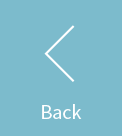I observed the 9 basic mistakes that beginners usually do when they learn the Euro Nymphing Technique.
During our masterclasses of Czech nymphing (or French nymphing or Euro nymphing) and the subsequent coaching of these masterclass participants, it was not difficult to observe the basic mistakes made most of the fly fishers who have no previous experience with modern nymph techniques before.
For the sake of order, if we used different names of nymphing techniques at the beginning, it is clear that I am talking only about nymphing with a French leader without the use of a fly line - whatever that method is called.
So if you learn modern nymphing method yourself, beware of the following most common mistakes.
1) Learn where no or little fish is - this first mistake sounds a bit odd, but try to imagine learning how to recognize the bite of the trout or the grayling when you have only one strike per hour. Try to learn the new technique on the water you know well and with as many fish as possible, then your learning curve will be steeper.
2) Wrong depth - in the first attempts do not be afraid to load the nymph set up a little more. Although you will have more snags but you will learn how to distinguish the fish strikes on the French leader and also if your point fly is closer to the bottom, then you have more chance of taking more strikes because you will get to the larger "feed zone".
3) Ignore strikes - when you are nymphing, strike everything. You need to learn to strike any suspicious move of the leader, including stopping it. Fish strike is often unrecognizable from snags, and it is worthwhile not to ignore this recommendation.
4) Bad contact with the flies - a very common mistake for beginners is that they do not have contact with the flies at the leader. We keep the right contact by eliminating any loops on the fly line or the French leader. Occasionally we can lift the flies a little and let them sink again. It is good to learn to balance the boundary between complete contact with the heaviest fly on the leader (this can be either the point fly or the fly on the dropper) and the natural movement of the fly (the dead drift).
5) Short length of drift - a lot of beginners throw the nymphs in front of them and immediately lift them after a moment. Try to maximize the length of the drift, counting that the fly needs some time to sink to the right depth and the end of the drift is interesting because the fish respond to the movement of the flies from the bottom to the surface.
6) Too short fly fishing rod - of course, you can learn modern nymph with your usual equipment, but generally, for Euro nymphing, the longer rod (10 feet or more) is the best with softer action that allows better casting of the flies with the French leader. Too short fly rod, you reduce the reach you can fish as well as the length of the drift.
7) Shrunken hand - learn to nymph with your outstretched hand. It hurts a lot, especially at the beginning, or when you have too heavy fly fishing equipment. The stretched hand during nymphing will help you to better concentrate and respond faster to the strikes, and by stretching your hand you will slightly enlarge the area to be reached (see previous point).
8) Poor concentration - modern nymphing requires more concentration than other fly fishing methods. Without focus, you can miss most of the strikes. Rather, fish for 10 minutes intensely with concentration, and then give yourself a five minute pause before you fish again.
9) Impatience – during our masterclasses we observed that the best pupil was not the one who caught the first fish but the one who listened, tried to fix his mistakes and patiently drilled a new technique. The good sign that you already have good command of the method will be that you will not have to think over the above advices.
If you want to learn more about modern nymphs, you can read more articles on our website:





















